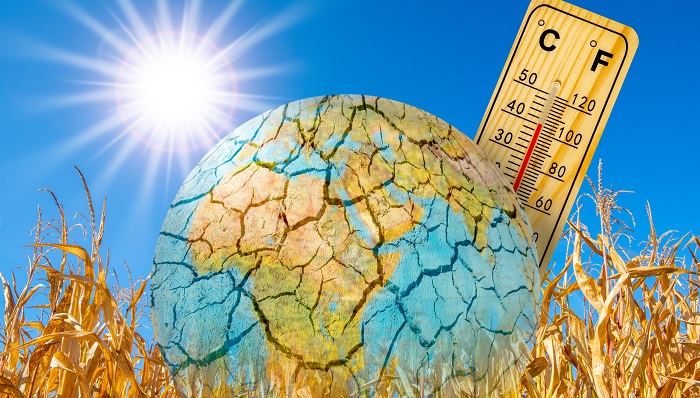

Muscat: Human activities that lead to an increase in emissions of carbon dioxide and other greenhouse gases is among the main reasons for the rise in temperatures in parts of the world, an official at the Civil Aviation Authority (CAA) said.
Some countries are witnessing a significant rise in temperatures this year, amid predictions that the coming decades will witness a greater rise. It often happens that the global average temperature continues to rise until the end of July each year.
Mahmoud bin Rashid Al Khayari, Head of the Forecasts Department of the Civil Aviation Authority, explained that the high temperatures witnessed by some countries of the world during this year's summer led to many precautions being taken to protect citizens from the negative effects of this rise.
"The rise is not a new thing that has been going happening during the past few years. Many European and Asian countries, the Australian continent and parts of the two American continents have witnessed periods of high temperatures coinciding with periods of drought that led to large fires in forests and cities, " Al Khayari added.
Al Khayari indicated that the extreme rise caused a decrease in water levels in many lakes and rivers, in addition to a shrinking of vegetation cover as a result of ancient urban effects in places that had not been witnessed for many centuries, as is the case in the United Kingdom during the past two years.
Head of the Forecasts Department of the Civil Aviation Authority stated that the rise is due to several reasons, including: a rise in average global temperatures, estimated by scientists at 1.5 degrees Celsius, which led to a rise in sea levels due to the melting of ice masses in the two polar continents, indicating that there are severe weather conditions around the world. The increase in the number of units of tropical cyclones due to climate change has caused a rise in temperatures, in addition to human activities that have led to an increase in emissions of carbon dioxide and other greenhouse gases.
Al Khayari pointed out that the phenomena of climate change also caused a sharp rise in temperatures in some regions of the world during the summer period and a sharp drop in temperatures in some other regions during the winter months. This is what has been recorded in the United States and Canada during the past few years, as some areas were exposed to unprecedented heavy snow.
He added that the rise in temperatures and heat waves are attributed to the synaptic distributions of atmospheric pressures. These factors are mostly seasonal and change from time to time with the influence of other climatic factors.
Other climatic phenomena, such as El Niño and La Niña, also have a significant impact on the rise in temperatures, which is the reason that weather scientists attribute to the rise in temperatures in many countries of the world during this period of the year. As they affect some areas that witness moderate temperatures and heavy monsoon rains, to witness a sharp decline in the rate of rain and an increase in temperatures.
Al Khayari concluded by saying that our region and the Arabian Peninsula witness normal weather during the summer period, with high temperatures sometimes reaching late forties due to northwest winds. While the average temperature in most places is early to mid forties.
Dr. Amina bint Mohammed Al Mukhaini, a specialist in family medicine at the Ministry of Health, explained that the high rise in weather temperatures and exposure to it for long periods causes heat stress, which some people suffer when the body temperature rises extremely. The people most at risk of heat exhaustion are children, the elderly, and those who exercise in hot weather.
Al Mukhaini indicated that a person with heat exhaustion feels several symptoms, including sweating, fatigue, exhaustion, severe headache, increased heart rate, muscle cramps, dizziness and fainting, stressing that this stress may lead to critical conditions such as heat poisoning or heat stroke if it is not treated.
Dr. Amna Al Mukhaini called for following some preventive guidelines from exposure to heat stress for people, especially in places with high temperatures in the summer, including wearing suitable clothes in the summer that allow the body to cool properly, and drinking liquids in quantities that suit the person, especially when making an extra effort to keep the body permanently hydrated.In addition to protecting the body from sunburn by using medical sunscreen products and avoiding strenuous sports activities at the height of high temperatures, and replacing them with air-conditioned gyms or choosing appropriate times. Also, do not leave people, especially children, in parked cars, even for a short period, and not to hesitate in consulting a doctor when the need arises.